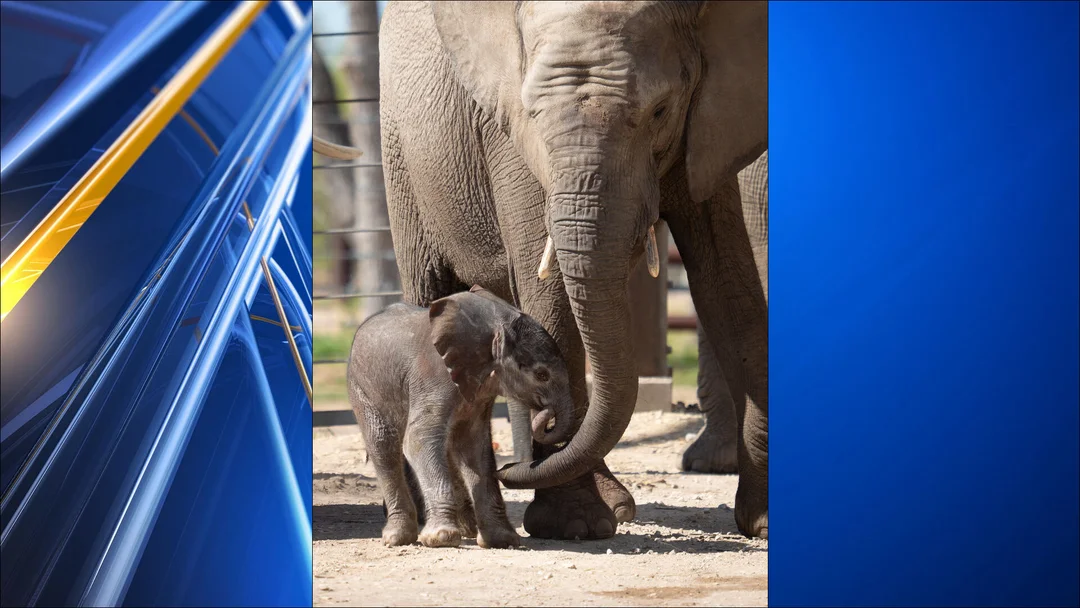
A Warrior Is Born: Historic Elephant Calf Arrives at Sedgwick County Zoo
A significant milestone in animal conservation has taken place in Wichita, Kansas: the Sedgwick County Zoo has welcomed its first-ever baby elephant, captivating both the local community and wildlife enthusiasts everywhere. This long-awaited birth isn’t just a source of joy—it’s a vital step in the fight for the future of African elephants.

On April 10th, Talia, a resident African elephant, delivered a healthy male calf named Bomani, which fittingly means “warrior” in Swahili. From his very first moments, Bomani lived up to his name. The Zoo reports that Bomani was on his feet and exploring just minutes after his birth, already displaying the curiosity and vitality that characterize these extraordinary animals.
This birth didn’t happen by chance. It is the result of years of planning and careful stewardship by the Sedgwick County Zoo team. According to zoo officials, Bomani and his mother are doing well and remain under close observation from dedicated veterinary and elephant-care staff. At present, both Talia and Bomani will stay behind the scenes to strengthen their bond and nurture essential herd behaviors. However, lucky visitors may catch glimpses of this dynamic duo as they explore their new space within the Elephant Boma.
Beyond the excitement and delight, Bomani’s arrival carries deeper conservation significance. African elephants are under increasing threat in the wild due to poaching, habitat loss, and shrinking populations. Each successful birth at an Association of Zoos and Aquariums (AZA)-accredited institution like Sedgwick County Zoo is more than a cause for celebration—it is a meaningful act of safeguarding the species, ensuring genetic diversity and a sustainable future for these majestic giants in North America.
The road has not always been easy for the herd. Earlier in March, Simunye, another elephant at the zoo, lost her calf to a stillbirth despite a healthy pregnancy—a reminder of both the fragility and perseverance required in captive elephant programs. The Zoo now looks ahead with optimism as three other elephants are currently pregnant, with hopes for more healthy calves on the horizon.
Bomani’s spirited first steps represent both a triumph and a new responsibility. As the community follows his growth, there’s an opportunity for all to reflect: What role can each of us play in the ongoing story of elephant conservation? Join the discussion below—share your thoughts, experiences, and hopes for Bomani and his herd. Your perspective could inspire the next generation of wildlife champions.